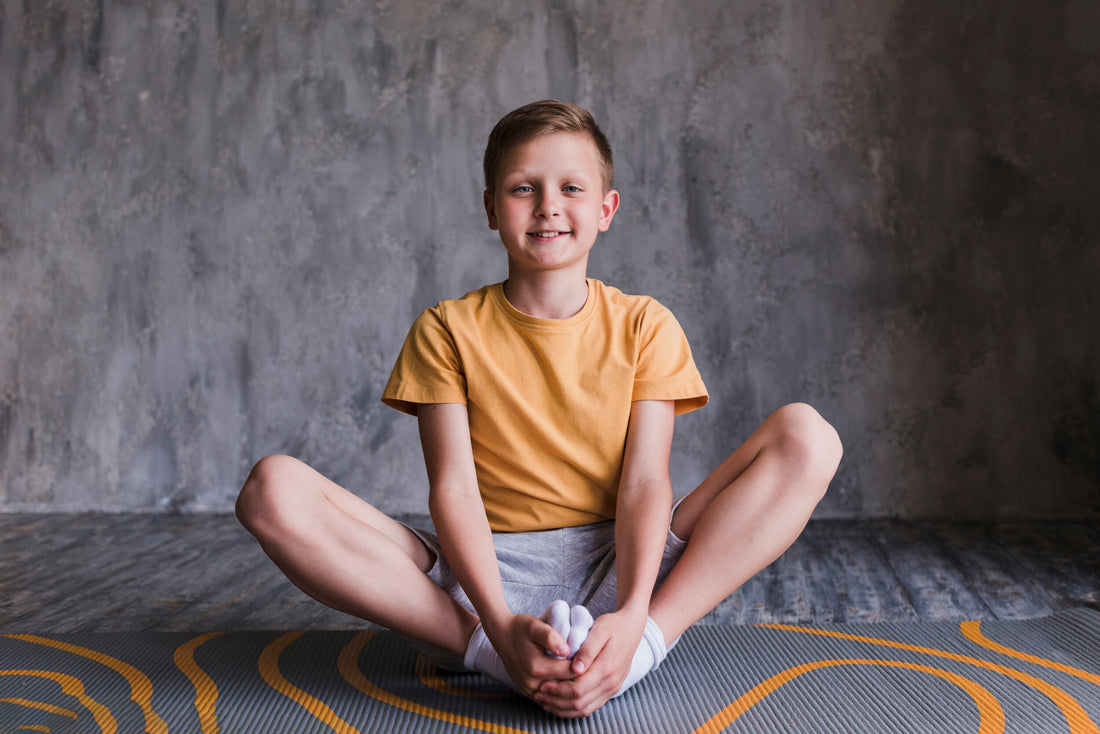
Self-Awareness Skills to Help Kids Be Their Best
Share
Self-awareness is the foundation for growth in early childhood and all throughout life. As children learn more about themselves, they are better able to understand how their thoughts and feelings affect their actions.
Self-aware people have a strong understanding of who they are, what drives them, and where they want to go in life.
This blog post will discuss skills that help kids develop self-awareness so that they can grow into competent, confident adults.
A self-aware person understands their own identity and values, how they are different from others around them. They understand themselves on a personal level as well as an interpersonal one.
Children learn about these skills in school where it is important to work with classmates on group projects or play games cooperatively.
Collaboration and communication allow kids to experience what it’s like working together while checking each other for understanding.
This can help children become more aware of when someone else does not express something clearly or is struggling to complete the project successfully which helps build empathy and encourages collaboration among peers.
Help Kids Understand Their Strengths
When we talk about developing self-awareness, we mean that people have knowledge of who they are including both strengths and limitations—and also know how to use those strengths to help them reach their goals.
This includes skills to recognize how their personality adds up to a well-grounded sense of confidence and purpose.
- Developing self-awareness helps kids:
- understand their own needs
- identify the skills they need to be successful in life
- manage emotions responsibly
- achieve goals by setting specific objectives for themselves that are realistic but also challenging
- maintain a strong social network through responsible participation in activities both inside and outside school (i.e., sports teams)
- and develop empathy towards others, especially peers who may have different abilities or backgrounds than theirs.
Emotional Awareness and Self-Awareness Go Hand in Hand
Self-awareness skills are key to emotional awareness and can help children develop empathy for those who may have different abilities or backgrounds than theirs.
For example, recognizing that they might be feeling things such as anger, frustration, anxiety, nervousness, boredom etc., helps them take steps to manage their emotions in a responsible capacity - such as taking deep breaths when angry (or other more aggressive tactics) or trying not to let themselves get lost in negative thoughts about the future.
And talking openly with teachers and parents about what they feel is helpful too because it gives adults insight into how their child feels on any given day.
There are lots of good habits you can develop to increase emotional wellness as a social skill for kids. The first step is to start noticing and naming emotions.
You can ask your child, "When you're [emotion], what does it feel like in your body?"
If they're unsure, model it by telling them about your experience with particular emotions.
For instance, you might say, "When I'm mad it feels like my face gets red and it feels like I have a lump in my throat."
Mindfulness Matters in Self-Awareness
Staying focused on the present moment can help kids become aware of their senses in any given situation. Thoughts have an impact on emotions too.
Often times kids get stuck in negative thoughts about the future or feel guilty over things they have done in the past. They may also have negative thoughts about the way they look or feel.
A mindful approach to these difficult emotions can help kids learn how to accept their feelings and think more clearly.
If you're looking for a few mindfulness activities with your child, here are some ideas:
- Mindful breathing (Diaphragmatic breaths)
- Body scans: Place one hand on your chest and one hand on your belly and take three deep breaths in and out as you focus solely on that sensation
- Breathing Buddies - Sit back to back with each other while taking turns guiding the breath of each other by counting length of inhale/exhales or placing hands around upper rib cage; this is great fun for groups!
Growing Kids Need a Growth Mindset
How your child approaches a new challenge (or even facing an old one!) can have a big impact on their future success.
This is called mindset, and a growth mindset--sometimes called a flexible mindset--helps build resilience as a social skill for kids.
Changing your mindset can be as simple as reminding your child that they can learn new things when they face a setback at school.
The key is to develop a growth mindset for your child. A typical, fixed mindset will only look at positives and negatives in situations.
For example, "I got an A on my test today...I'm so smart."
The positive attributes (smart) are unquestioned under this type of thinking - they're the norm.
But with a growth mindset, you don't just accept that because you got an A it means you're smarter than other kids who didn't get A’s.
You can also consider how hard you worked or what methods led to the success:
- Did they study more?
- Did they have better notes from class?
- Are there things about themselves that may make them smarter than others without realizing it?
A growth mindset is a belief that people can improve their intelligence and skills through effort. This means instead of seeing challenges as personal battles between your child and the task, they see it as an opportunity to learn!
As difficult as learning new things may seem when you are first starting out in school, it gets easier and more enjoyable with time.
Your child will feel proud of themselves for working hard at something even if they don't do well at first because they know they can get better without comparing themselves to others.
How HeyKiddo™ Can Help
Kids need parents, teachers and other caring adults to help them learn how they can build healthy relationship skills now and for a lifetime. Our HeyKiddo products are designed to give parents and teachers everything they need, when they need it, to build lifelong social, emotional and leadership skills at home or in the classroom.
Download our Stress Management Toolkit today by joining our newsletter and learn how you can help build these important skills at home or at school.














